Morris Fuller and his Bishopstawton Exchange.
Things had soon become very uncomfortable for Morris Fuller in Ryburgh and he had spent a good deal of the time in 1889 away from the village acting as assistant clergy in Devon. It must have come with a sense of relief that he took up his new post at Bishopstawton in May 1890 as Henry Fowler Baker came to Ryburgh. Morris was inducted on the 17th July by the Revd. A.E.Seymour, Archdeacon of Barnstaple. In a letter written from Ryburgh in 1888 to the Bishop of London, Morris wrote the following about his life’s work and priorities, which he no doubt carried forward with him to Bishopstawton, saying:
I make a point of putting my parish and official duties first and my studies are made quite subordinate to them. In point of fact I simply give that time to my studies which my neighbours give to their gardens or their amusements, to flourish in society……….But as a country clergyman has a good deal of spare time on his hands - I don’t waste it as most of my clerical neighbours do, but use it for the good of the Church, to spread information as to its history & classics.
However, since 1887 there had been an ongoing controversy involving the Bishop of Lincoln and his Anglo Catholic ritual practices deemed by many as illegal. This controversy also raised questions as to the validity of the jurisdiction of the Archbishop of Canterbury in judging the case without deference to the other Courts of the Anglican Church. Fuller was in his element in the midst of this and spent much time in the writing of the book “The Throne of Canterbury”. Having just arrived back in Devon in 1890 he produced large amounts of correspondence on the subject in the Church Times and other publications. He also found time to start a local branch of the C. of E. Temperance Society and keep up with Primrose League activities.
At this point it is really helpful to take a look at what was going on behind the scenes and see what was driving Morris’s blatant ambition. Whilst it is easy to apportion dates on paper to his time in successive parishes, the changes were not as deftly chronological as the dates suggest. A recent exploration of the archives at Lambeth Palace (more specifically FP Temple 32 and FP Creighton 5 and 12) show very clearly that even before he left Devon to go to East Molesey, Morris had his sights set on a London Parish and applied for an exchange of his new Molesey Parish with Revd. George Clench Bellewes the first incumbent of St Mark’s Marylebone Road in 1879 when that church was a new, daughter church built in 1870 of St Mary’s Bryanston Square.
In June 1878 the then Bishop of Exeter:
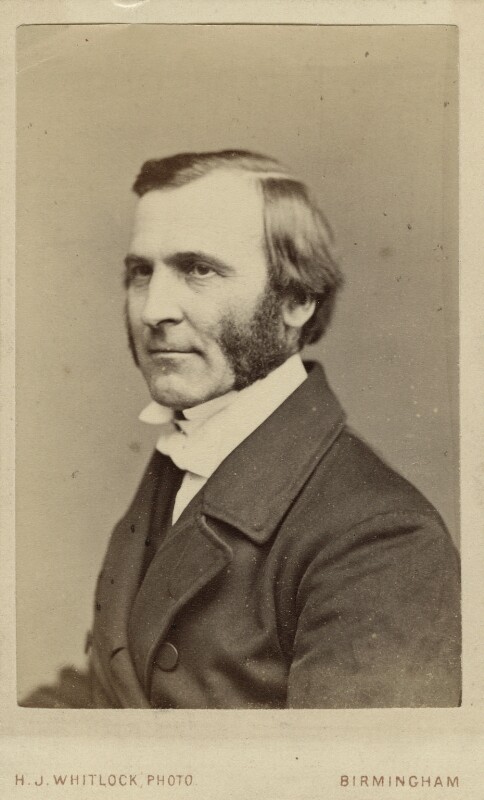
© National Portrait Gallery, London Frederick Temple
by Henry Joseph Whitlock albumen carte-de-visite, circa 1867 3 3/8 in. x 2 1/4 in. (87 mm x 56 mm) image size Given by Phyllis Cunnington, 1962 Photographs Collection
Frederick Temple wrote the following testimonial undoubtedly in a diplomatic effort to get Fuller out of his Diocese.

As can be seen in the clumsy typo above this was from a printed leaflet of testimonials presumably prepared by Fuller himself. By the time he prepared this promotional sheet in the 1890’s Temple was then and had been since 1885 the Bishop of London. To be found in the Lambeth Palace Library and catalogued as: FP Creighton 5 ff 205-212.
Several letters dating from December 1879 including one from Fuller’s Brother-in-law (Revd. Charles Natali Edgington) were all sent to The Hon. & Revd. William Henry Freemantle Rector of St Mary’s Bryanston Square 1865-1883 and Patron of St. Mark’s Marylebone Road.
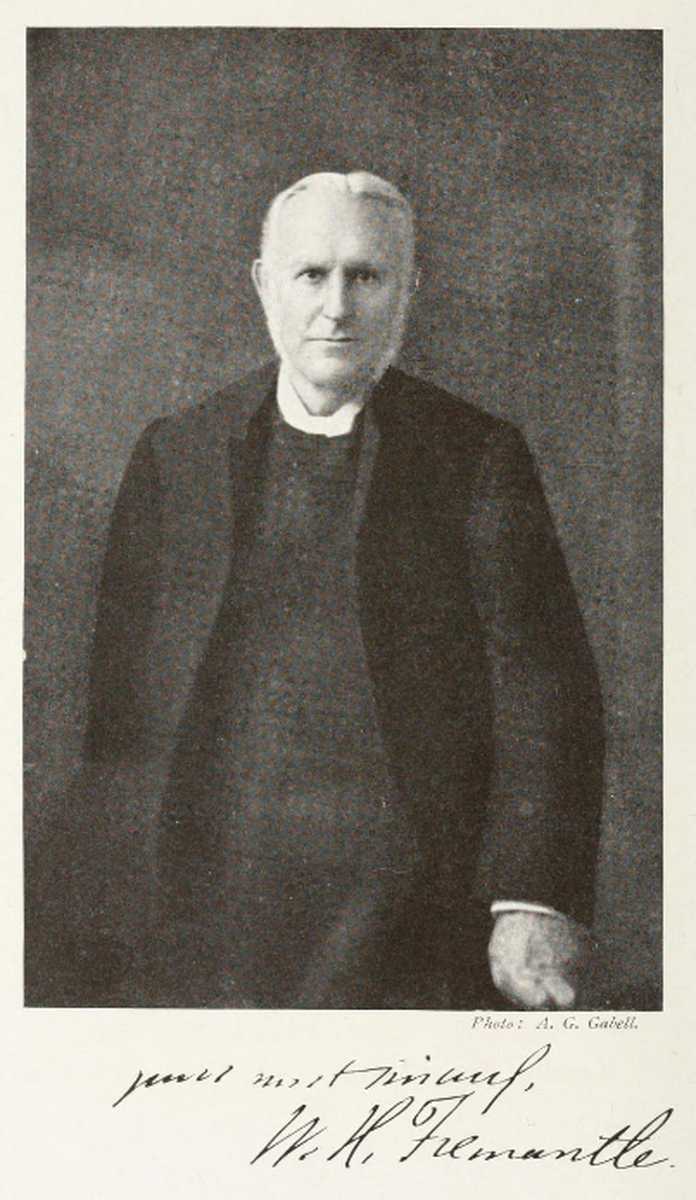
Image from "Recollections of Dean Freemantle Chiefly by Himself "1921
None of them are in support of the exchange with George Bellewes with reasons supplied by Helen Fuller’s brother Charles:
Trinity Parsonage,
Bow Road
Dec 24th 1879 (Private)
Dear Freemantle,
I am informed that an application was made to you yesterday or will be made to you shortly to consent to an exchange of livings between the Revd. G.C.Bellewes, incumbent of St. Mark’s Marylebone Road and the Revd. Morris Fuller vicar of St. Pauls. East Molesey. The exchange as proposed would be a corrupt exchange and the parties to it would be liable to heavy penalties under an Act 31.Eliz C.6 S7. I can also give you very important information respecting the character of one [of] the parties but in strict confidence, my name must not be mentioned, but I entreat you to suspend your decision until you have seen me and then if you think fit, to withhold your consent without assigning any reason. I should have called on you today, but I am very busy and was afraid of missing you, I expect to be at the C.C.C. on Monday, or I could see you before then if you would appoint a time.
Yours faithfully,
Charles N. Edgington
From Revd.Walter James Tait Vicar of Tavistock 1872-1883
Xmas Eve. The Vicarage ,
Tavistock
Confidential
Dear Mr Freemantle,
I write at once to beg you to have nothing to do with Mr M. Fuller.
He is a clever man but thoroughly unconscientious. When at Lydford he called on extreme rituals & at least latterly had full vestments, lights & incense.
But what is comparatively & more point he most grossly neglected his duty again & again. Once for 6 weeks to force a clergyman to exchange with him, he went away leaving no provision for the Service. A Wesleyan went round to try to get the neighbouring clergy to take an evening service. He only returned on the Bp. threatening ecclesiastical proceedings.
He long had a grant for the curate & aid for a Curate for a Mission Chapel on the Moor. He had no curate,& made false referral This was proved before the Archdeacon & Rural Dean.
There is no clergyman here who wd. admit him into his pulpit or wd. be on intimate terms with him.
The Curacy of Princetown goes with Lydford & he actually tried, on resigning the living of Lydford, to sell the Curacy. Of course he was not able to do so. Some suspect his moral character in other ways: but I am not overstating it when I say that he is considered a most untrustworthy, unconscientious man. It is a great pity for he is an able man & is very pleasant in his manner he has also a very nice wife but in no way or form can he suit you.
With best Xmas wishes
I am Yrs v. truly
W.J. Tait
On 30th December 1879 Frederick Temple was rather more to the point than he had been the previous year:
My Dear Sir,
It is not easy to qualify an old testimonial. It is much easier to write a new one.
Mr Morris Fuller is an able man, and has done good work. But he cannot be trusted to go on as he begins. He likes getting things going. He does not like keeping things going. And in each case he does well what he likes and not what he does not like.
It is impossible to avoid forming a lower opinion of good beginnings as soon as you find that the promise which they seem to contain is false and that the beginning is the whole. And the slackening which marks the end of this “beginning” is almost always positively mischievous.
I think I need hardly say more.
Yours truly
F. Exon.
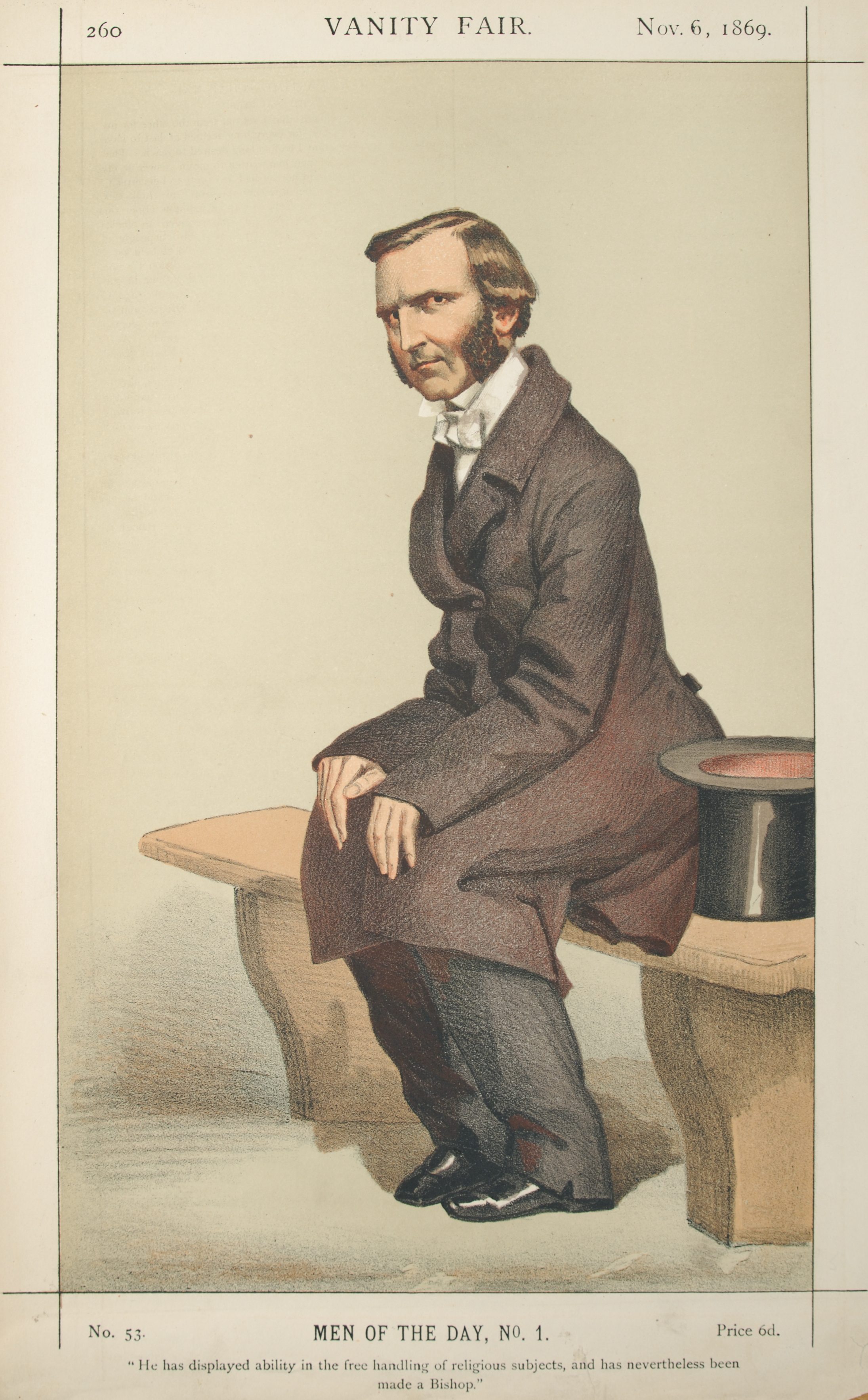
Frederick Temple when Bishop of Exeter
As we have already seen he didn’t get the job and stayed in East Molesey until he came to Ryburgh. To date I have found nothing regarding this exchange but as the Tatham family ruled the roost and favoured the “High” the move may have been relatively straightforward. As we have also seen things had started to get a little awkward for Morris in Ryburgh by April 1888 and he tries once more to exchange parishes with George Bellewes:
St Mark’s Vicarage
Marylebone Road W. April 4 1888
Lord,
I venture to ask your Lordship’s opinion on a matter of some importance.
The Rev. Morris Fuller now Rector of Ryburgh, Norfolk is desirous of an exchange of livings with me. He was formerly in the Diocese of Exeter and is I believe known to your Lordship.
The Revd. Canon Leigh, Rector of St Mary’s Bryanston Square is Patron of this living - and would of course consent to Mr Fuller’s coming here only on condition of your Lordship’s approval. This Parish of St Mark’s is a daughter Parish of St Mary’s Bryanston Square.
May I ask whether we may count on your Lordship’s approval? Mr Fuller is very desirous of coming to this Diocese - and as he has considerable private means, a parish like this, in which there are some thousands of poor people, might benefit by his coming. He knows this Parish well - and has on repeated occasions preached in St Mark’s Church.
I can do nothing further in the matter until I have ascertained your Lordships opinion.
I beg to remain my Lord,
Very obediently yours
Geo. C. Bellewes.
This letter to Frederick Temple the Lord Bishop of London is overwritten:
“ Does the Archdeacon of Middlesex know Mr Fuller and has he any opinion to give?”
Also:
“ What thinks the Bishop of Marlborough”
and in another hand:
“Mr. Morris Fuller not a suitable incumbent ”
We then learn of the opinion of James Augustus Hessey, the Archdeacon of Middlesex in the next letter in the file:
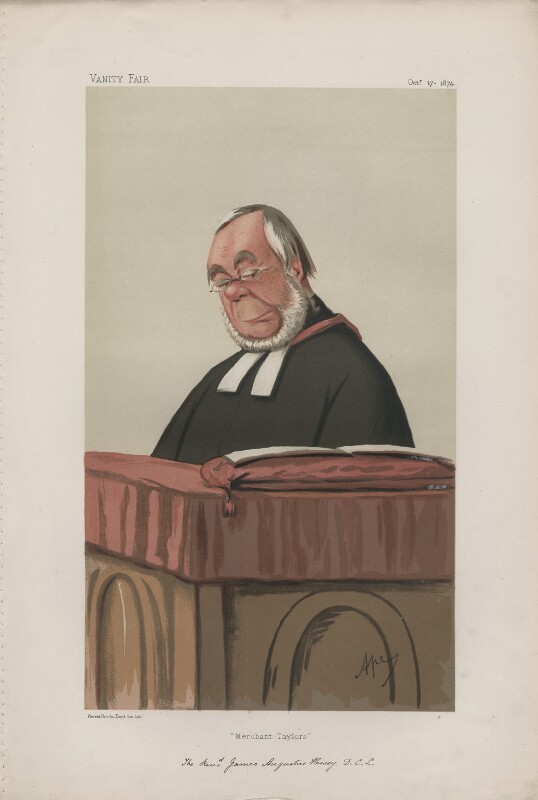
© National Portrait Gallery, London
James Augustus Hessey ('Men of the Day. No. 89.')
by Carlo Pellegrini chromolithograph, published in Vanity Fair 17 October 1874 14 1/8 in. x 9 1/2 in. (359 mm x 242 mm) paper size Reference Collection NPG D4366
41 Leinster Gardens,
Hyde Park, W
Private and Confidential Apr 6 1888
My dear Bishop of London,
I once met the Rev. M.J.Fuller at the dedication (by myself) of a memorial window at St Clement Eastcheap, to Thomas Fuller & two other worthies of the City. (Fr Fuller was in the City before going to Cranford)
Mr M.J.Fuller was there as the historian of his namesake & collateral ancestor, and was introduced to me. His Book is very interesting, and Mr M.J.Fuller seems to have written several works of literary interest. I have no means of knowing what sort of a Parochial Clergyman he is, or whether he is likely to attend to the “some thousands of poor people” of whom Mr Bellewes speaks, but with whom, I fear, Mr Bellewes is not very successful. Mr Bellewes is not a lucid man, & was merely matriculated at Univ. of London. I happen to know that he has made various efforts of exchange, unsuccessfully. We should not lose much, I think, by his quitting the Diocese, tho’ there is nothing tangible against him. The only thing I should care for is this - Can you find out whether, as Rector of Lydford in Devon, he was an active or merely a literary Clergyman? He seems to wish to come to London - Will he come to work among the poor of St Marks, or does he simply want a place in Town for literary purposes? One circumstance that strikes me is this, Ryburgh is, in Crockford, twice the value of St Marks -Why does he make this sacrifice? Or may it be that Bellewes want of success at St Marks is a thing that Fuller thinks his activity can remedy, & so increase the value of the living-?
But as I say, I am thinking of the poor, who, in that region want attending to.
All this in confidence
You will understand that there is no reason against Mr Bellewes *******?being countersigned - but I should like to be sure what sort of successor he is providing
Sin. Yrs.
J A Hessey
As for the Bishop of Marlborough, he was Alfred Earle:
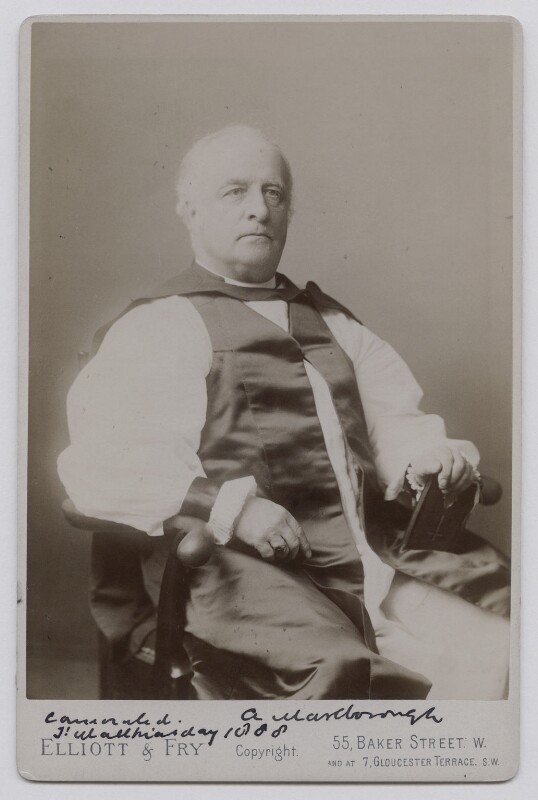
© National Portrait Gallery, London
Alfred Earle by Elliott & Fry albumen cabinet card, 1890s NPG x159021
Formerly Archdeacon of Totnes Alfred Earle had conducted the Ecclesiastical Enquiry into Fuller’s behaviour at Princetown and Lydford for Bishop Temple in 1873 and this is what he has to say:
April 9th 1888
My dear Lord,
Mr Fullers record was unsatisfactory when at Princetown and at Lydford. Reading Archdeacon Hessey’s letter I quite agree that to entrust “some thousands of souls” to one whose antecedents as a parish priest are not successful must be a mistake. He is extremely clever one of the cleverest men I know, but, I should not care to see him entrusted with such a parish he
is not the man for such work.
Yours faithfully
A Marlborough
Needless to say Morris was not going to roll over without having his say and it also tells us first hand what he thought he was doing in Ryburgh.
Ryburgh Rectory Fakenham
April 25th 1888
My dear Lord Bishop,
I hardly like intruding upon you with all your arduous multifarious duties, but I feel quite certain that you would not knowingly do me an injustice.
Mr Bellewes of St Marks, Marylebone Rd. writes me word that you do not think me a suitable incumbent for the asking as I would give myself to my books and I think I ought to say in justice to myself, that I make a point of putting my parish and official duties first and my studies are made quite subordinate to them.
In point of fact I simply give that time to my studies which my neighbours give to their gardens or their amusements, to flourish in society - while not one in this neighbourhood can show the same ‘tale’ of work that I can. As in Devonshire so also in this Diocese, I am regarded as one of the most energetic clergymen in the Deanery which has sent me to the Diocesan Conference to represent them. I have daily services in church, three services on Sunday, including celebration, and I usually open my school every morning, I give attention to these while the afternoon is devoted to visiting in the Parish. I have the care of two parishes containing nearly 1000 souls and though single handed, during last lent I conducted 90 services, with 3 sermons & 2 catechising weekly, besides the usual services described above.
I shouldn’t trouble you Lordship with these figures, except to prove that if I accept a Parish, I throw myself heart & soul into the official duties thereof making that the
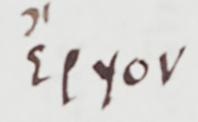
of my life. But as a country clergyman has a good deal of spare time on his hands - I don’t waste it as most of my clerical neighbours do, but use it for the good of the Church, to spread information as to its history & classics. But this is my
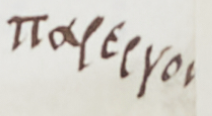
I can only account for the mistake having arisen into which your Lordship has inadvertently fallen, from my having written about a City Church, and saying that I should prefer such a one without a Parish as then I should have plenty of time for the Libraries, and go on with my studies
Undoubtedly, I should prefer just a position, but that does not mean that if I had a parish I should neglect it for literature. I don’t do that here, I didn’t do that on Dartmoor. It simply means that I am very fond of work, and that if I had more time to give to them, I should embrace that opportunity. But being still, thank God, brimful of energy and enthusiasm, should His good Providence call me to an active there, I should go heart & soul into it, and not neglect its duties for any other more attractive work whatever.
Today is St Mark’s Day - and my duties today would contrast I doubt not favourably with those of the Vicar of St Mark’s Marylebone Road Services at 8.30 and 6 Board of Guardians 10.30 visiting & Parish in the afternoon.
I really feel I ought too apologise for intruding at such length on your Lordship’s valuable time, but I am sure you wouldn’t like to leave a wrong impression on Mr Bellewes mind or Canon Leigh’s on this point. I saw Canon Leigh (Rector of St Mary’s Bryanston Square and Patron of St Mark’s 1883-1894) the week before last, & he made no objection to my going to St Mark’s, and Mr Bellewes has asked me to write to your Lordship, with a view to your correcting what seems to them an erroneous, if not unfavourable impressions to my fitness for the post. I may add that I have often preached at St Mark’s on special occasions, and I believe with approval. I have known it nearly nine years.
I remain, my Lord, Your Lordship’s very faithful servant
Morris Fuller
P.S. One of my daughters is working as a sister in Mr Ottley’s Parish (Quebec Chapel) in the same neighbourhood as St Mark’s.
The reply is written over the first page of the above letter and dated 27th April 1888
My dear Sir, I have used all my endeavours to judge you fairly. I do not think it would be wise for you to undertake the charge of such a parish as St Mark’s Marylebone. I can not say more
Yours faithfully
F Londin
In spite of this quite clear refusal to appoint him, there is a further lengthy epistle, discreetly bad-mouthing George Bellewes and letting Frederick Temple know quite clearly of the jewel he is passing up!
The file continues with Morris now in Bishops Tawton where he had finally ended up having exchanged parishes with Revd. Henry Fowler Baker who came to Ryburgh in 1890. Morris, clearly not happy in his work, writes once more to Bishop Temple:
24 Manchester Street Manchester Square .W.
Written on Grosvenor Club, Bond Street W. note paper and dated
April 20 1891
My dear Lord Bishop,
I trust your Lordship has received the copy of my new work on “The Throne of Canterbury” which is written to uphold the jurisdiction of that See, and the Judgement based upon it: & I hope you will appreciate my line of argument & the authorities with which it is enforced & illustrated.
My object in approaching your Lordship is to ask you if you would kindly give me a testimonial for the Dixie Professorship of Ecclesiastical History Cambridge - which I am told would have the greatest weight with the Board of Electors.
Ecclesiastical History - including the Canon Law - is a subject to which I have devoted many years of careful & philosophical study, and the best energies of my life. Indeed in some of its departments I have been accounted a specialist and as an ecclesiastical historian I believe I have built up a solid reputation.
If I have it owing to my love for the subject-matter, and the enthusiasm which from the first I have taken in it for many reasons.
My desire to obtain this chair is that I may have an opportunity of enkindling the same enthusiasm in the minds of the Divinity students at Cambridge, and of imparting to them the results of those stores of information which I have been steadily amassing all the time.
Believing as I do, this position would give me the desired locus standi for carrying out my wishes, I should feel very much obliged if your Lordship could see your way to give me such a testimonial as would assist me in my Candidature.
Should your Lordship kindly consent to do so, please mention the particular Professorship for which I am a Candidate - Dixie Professorship of Ecclesiastical History which Canon Creighton is about to vacate.
Enclosed please find some critiques on my various works which I have published from time to time.
I remain
Your Lordship’s faithful servant
Morris Fuller
The Dixie Chair was a new post created for Mandel Creighton who was moving on and who Morris encounters later when he succeeds Frederick Temple as Bishop of London. The following extracts are held in the Lambeth Palace Library and catalogued as: FP Creighton 5 ff 205-212

Undoubtedly this is the testimonial in question
printed together with the testimonials of the Bishops of Winchester and Exeter, a couple of titled gentlemen and all topped off with the following from the very top, i.e. former Bishop of Truro, Edward White Benson, now Archbishop of Canterbury:
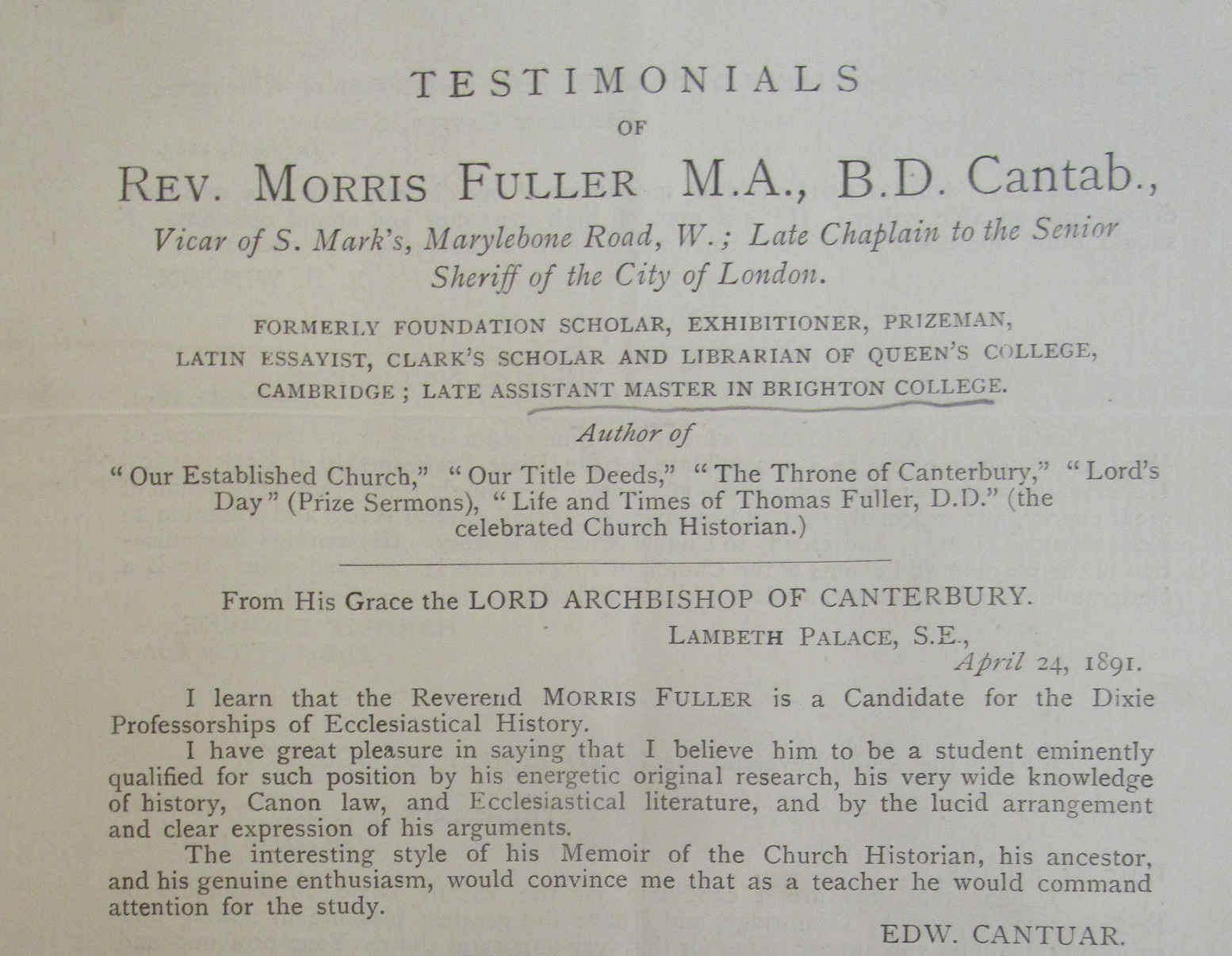
It would seem clear that everyone wanted him out of parish work and this support of his application to what was a prestigious chair ought not to have failed, in theory. But fail it did and Morris wrote back to Bishop Temple with his view of the failure and asks him once more about an exchange with Bellewes.
Bishops Tawton Vicarage,
Barnstaple
July 13th 1891
My dear Lord Bishop,
I’m sending your Lordship a copy of my academic sermon, which I preached on the taking of my BD degree at Cambridge. I desire to thank your Lordship for your kind support of my Candidature for the Dixie Chair.
It may interest your Lordship to know that the Vice-Chancellor whose guest I was at the Hall of Trinity Coll. opined me that my application received the “most respectful attention”, and I was told that the decision of the Electors lay between Mr. Gwatkin & myself out of seven candidates. The authorities of my College consoled me with the remark, that it was no disgrace to have been beaten by such an exceptionally strong Candidate, (whatever he might be physically) one, who had taken four first classes in the Tripos, a scholarship in Hebrew, a prize for Biblical Greek, & who was never more happy than when absorbed in natural history studies. Being a layman he will probably retain the Chair for life and it carries with it a fellowship at Emmanuel.
On account of my literary works the Divinity faculty at Cambridge will grant me a DD degree next year instead of having to wait the usual five years. But I shall have to write another book for it on a thesis selected by the Professors, and when I have done this, I shall —-cease from writing any more at all events for a time & devote myself closely to the duties of the Ministry.
This being the case, will your Lordship sanction an exchange with are Bellewes, Vicar of St Mark’s Marylebone Road - who is coming here as my L[ocum] T [enens] next month. Canon Leigh (the Patron) has again opined me that he will appoint me to St Mark’s at any time, when your Lordship will kindly give your permission.
Mr Bellewes allows me to say that the grant for a Curate quite alters the circumstances of the case to what they were when the case was last brought before your Lordship, and as I have now ample means, I could keep a second Curate if necessary.
Another of my boys will be married next month, and this will make three sons married and settled. In Town, besides a daughter working in connection with the East Grinstead Sisters at S. Saviours, Haggerston. Your Lordship will understand our natural desire to be nearer children at our time of life.
Trusting your Lordship will regard favourably the proposed transfer under its new aspects, and with my best thanks & our united kind regards
I remain
Your Lordship’s faithful servant
Morris Fuller
Bishop Temple seems to have had enough, as this letter is overwritten:
I am inclined to let him come, as at any rate being better than Bellewes but what do you think
F Lond
Tell him I will consent to the exchange
17/7/91
and at this stage so does the Bishop of Marlborough.
However things drag on until December 1892 when Marlborough sends the letters that start this page to Temple. These he received from Patron of St Mark’s, Canon Leigh :
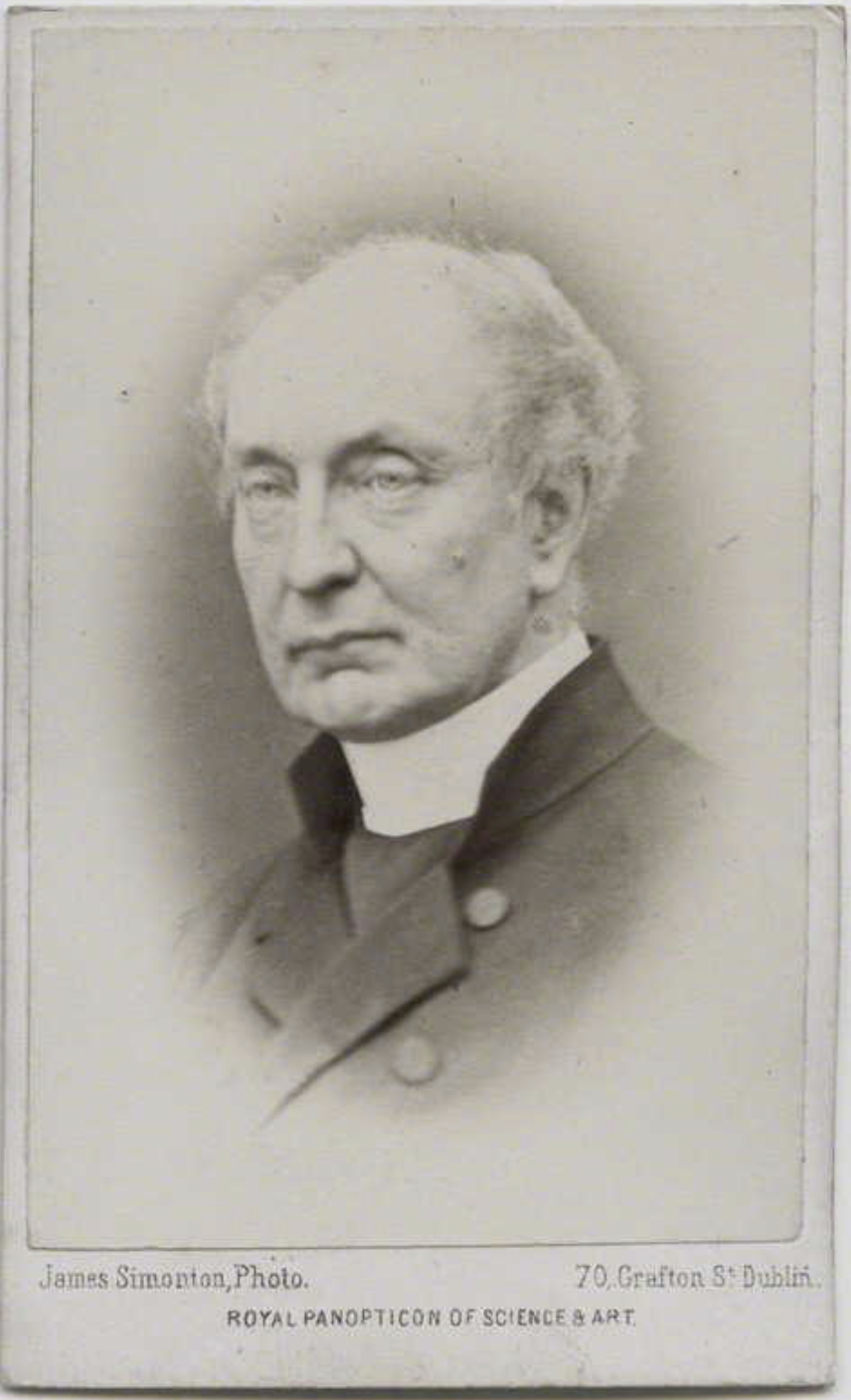
The Hon and Very Rev James Wentworth Leigh
by courtesy of Ancestry member Sheila Woolf
Leigh stated that he had not known of this earlier history when he agreed to the exchange. Temple replies “I hope Leigh will be quick. We cannot retract on letters of 14 years ago”
And so it was in 1893 Morris Fuller finally got to St Mark’s Marylebone Road.
Firstly however, we must see what else Morris was doing in his time at Bishopstawton.